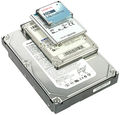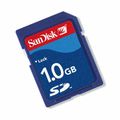Difference between revisions of "Template:Data Security for Builders"
Jump to navigation
Jump to search
| Line 10: | Line 10: | ||
☐ If you encounter any other kind of storage device besides a hard drive, get direction from your instructor. | ☐ If you encounter any other kind of storage device besides a hard drive, get direction from your instructor. | ||
| − | + | ;Commonly Encountered Storage Devices | |
*3.5" Hard Drives (Desktop size) | *3.5" Hard Drives (Desktop size) | ||
*2.5"Hard Drives (Laptop size) | *2.5"Hard Drives (Laptop size) | ||
*Optical Disks | *Optical Disks | ||
| − | + | ;Less Commonly Encountered Storage Devices | |
*1.8" Hard Drives (Laptop size) | *1.8" Hard Drives (Laptop size) | ||
*Odd-sized Small Form-Factor Hard Drives | *Odd-sized Small Form-Factor Hard Drives | ||
Revision as of 18:14, 6 November 2012
We are responsible for securely wiping or destroying any storage device that is donated to Free Geek. We are routinely responsible for removing and securing hard drives to be wiped.
- What to keep in mind when removing hard drives
☐ Make sure to separate any caddy parts and adapters from the hard drive.
☐ Tape any caddy parts, adapters, and screws together back inside the hard drive bay. These should stay with the system unless your instructor needs them for parts.
☐ Only ever leave hard drives and other storage devices in a designated box or with your instructor.
☐ If you encounter any other kind of storage device besides a hard drive, get direction from your instructor.
- Commonly Encountered Storage Devices
- 3.5" Hard Drives (Desktop size)
- 2.5"Hard Drives (Laptop size)
- Optical Disks
- Less Commonly Encountered Storage Devices
- 1.8" Hard Drives (Laptop size)
- Odd-sized Small Form-Factor Hard Drives
- Mini PCI or Mini PCIe Solid State Drives
- Small media cards (SD, Compact Flash, etc)
- SIM cards
- Floppy Disks
- PCMCIA (PC Card) Hard Drives



